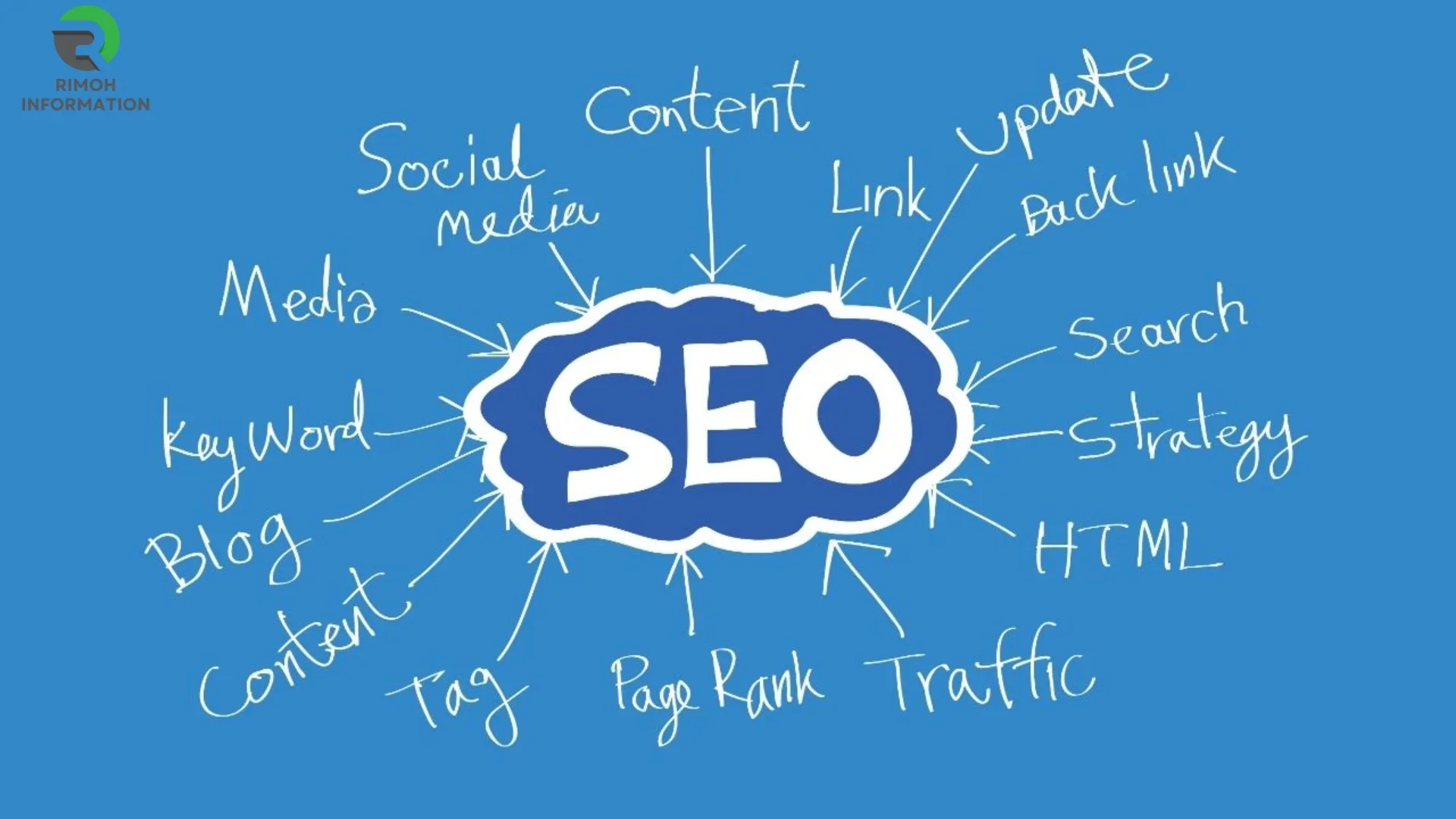
The Importance of SEO: 10 Benefits of Search Engine Optimization
Why SEO: Google, as a search engine, processes billions of searches daily, each representing a potential customer. Effectively positioning your brand in search results presents a significant business opportunity. In this article, we will delve into the significance of SEO (Search Engine Optimization) and the advantages it offers.
What Is Search Engine Optimization?
Search engine optimization (SEO) refers to the process of enhancing a website’s content, structure, and overall online presence to boost its visibility and ranking on search engine results pages (SERPs). This involves various techniques such as keyword research, on-page optimization, link building, and technical SEO to make the website more attractive to both search engines and users.
Businesses invest in SEO to improve their chances of being discovered and meeting existing demand. This can lead to increased website traffic, higher conversion rates, and ultimately, greater sales.
What’s the Importance of SEO for a Business?
SEO holds significance for businesses as it enables them to achieve visibility for search queries organically. This means earning rankings in search engine results without the need to pay for them through pay-per-click (PPC) advertisements.
Ranking well in search results for queries related to your content, products, or services can significantly increase your website traffic. This influx of visitors has the potential to translate into revenue by converting prospects into customers, often at a lower cost compared to utilizing paid Google search ads.
However, the importance of SEO for a business can vary depending on the circumstances. For instance, if you’re launching a new product, SEO might not yield fast enough results to have a meaningful impact, and paid advertising or PR campaigns may be more suitable. Why SEO Similarly, for events like conferences or limited-time courses, email marketing could be more effective due to the short-term nature of the offering.
Moreover, many B2B service businesses may achieve quicker results by leveraging platforms like LinkedIn or conducting one-on-one sales, although SEO can still be valuable in the long run.
Nevertheless, the practices underlying SEO are beneficial for any business as they help increase visibility and position the brand in front of a larger pool of potential customers.

The Main Elements of SEO
Building SEO programs entails essential components such as keyword research, content creation, website development and design, and link building. However, before delving into these specifics, it’s beneficial to have a basic understanding of how Google search operates.
At its core, Google aims to provide relevant results to searchers. Why SEO It accomplishes this by crawling websites, indexing pages, and subsequently delivering the most suitable results to users.
Google provides a guide outlining five key factors that influence how search functions:
- Meaning
- Relevance
- Quality
- Usability
- Context
These factors are interwoven throughout all core elements of SEO, which include:
– Keyword research and planning
– Content development and on-page SEO
– Off-page SEO
– Technical SEO
– Local SEO
By addressing each of these core elements, businesses can effectively optimize their online presence to align with Google’s criteria for delivering relevant and valuable search results.
Keyword Research and Planning
Keyword research involves researching, identifying, and prioritizing search terms with the aim of creating content that ranks well for those terms. For instance, a business specializing in artificial intelligence software for content creators would want to rank for search queries related to “AI content.”
This process allows the business to pinpoint potential keywords and assess their search volume (the estimated number of monthly searches) as well as other search metrics like Keyword Difficulty, which gauges the level of difficulty in ranking within the top 10 search results for that keyword.
Content Development and On-Page SEO
SEO content development involves creating and optimizing content to address search queries and improve its ranking for target keywords. This process may entail developing new content or optimizing existing material. Sometimes, it involves optimizing smaller on-page SEO elements such as title tags, internal links, and content structure.
To maximize the likelihood of ranking for a target keyword, it’s essential to provide high-quality content structured in a manner that aligns with Google’s ranking criteria.
Off-Page SEO
Off-page SEO encompasses strategies implemented outside of your website to enhance website rankings and organic traffic. Primarily, this involves activities like link building and backlink management.
Backlinks refer to links on external websites that point to your site. Google’s algorithm takes backlinks into account when ranking web pages, making your backlink profile significant.
Building high-quality backlinks can be achieved through various methods such as guest blogging, digital public relations, producing compelling content that naturally attracts backlinks, and more.
An effective approach to monitoring your backlink profile is by utilizing our Backlink Analytics tool.
Technical SEO
Technical SEO encompasses various aspects related to the technical infrastructure of your website and its impact on SEO. In essence, factors beyond content, keywords, and backlinks contribute to improved rankings and increased traffic. Why SEO These factors include page speed, website user experience, and mobile-friendliness.
Common technical SEO tasks include:
– Submitting your sitemap to Google
– Ensuring your website is mobile-friendly
– Implementing HTTPS instead of HTTP
– Establishing an SEO-friendly site architecture with intuitive navigation
– Optimizing for Core Web Vitals, which are metrics indicating the quality of user experience
– Enhancing page speed
Technical SEO ensures that your website can be effectively crawled and indexed, is accessible across devices, and is structured logically. This not only enhances SEO outcomes but also improves website performance and boosts conversions. Why SEO.
Local SEO
Local SEO involves optimizing your website and associated properties to enhance local visibility and attract local traffic. Why SEO While it may not be relevant for all businesses, it holds significant importance for those with a local focus or physical presence.
Local SEO encompasses various factors, such as optimizing your Google Business Profile, incorporating local business schema, conducting research on and targeting local keywords, managing NAP (name, address, and phone number) citations, and more.
The significance of search engine optimization for local businesses is distinct. Your directory listings play a crucial role in being discovered, and monitoring them to ensure accuracy and effectiveness can drive motivated customers to your business.
Here are 10 benefits of SEO (Search Engine Optimization):
- Increased Website Traffic: SEO helps improve your website’s visibility in search engine results, Why SEO leading to more organic traffic.
- Higher Quality Traffic: SEO targets specific keywords relevant to your business, attracting visitors who are more likely to be interested in your products or services.
- Better User Experience: Optimizing your website for SEO involves enhancing site speed, usability, and mobile-friendliness, resulting in a positive user experience.
- Enhanced Brand Credibility: Websites that appear higher in search results are often perceived as more trustworthy and credible by users.
- Cost-Effectiveness: Compared to paid advertising, SEO offers a more sustainable and cost-effective long-term marketing strategy.
- Increased Conversion Rates: By targeting relevant keywords and optimizing your website for user experience, Why SEO , SEO can lead to higher conversion rates.
- Long-Term Results: While it may take time to see significant results, the benefits of SEO can be long-lasting and continue to generate traffic and leads over time.
- Beat Competitors: Investing in SEO allows you to outrank competitors in search engine results, gaining a competitive advantage in your industry.
- Insights into Customer Behavior: SEO tools provide valuable insights into customer search behavior, allowing you to understand your target audience better.
- Adaptability: SEO strategies can be adapted and refined based on changing market trends and algorithm updates, ensuring your website remains competitive in search rankings.




